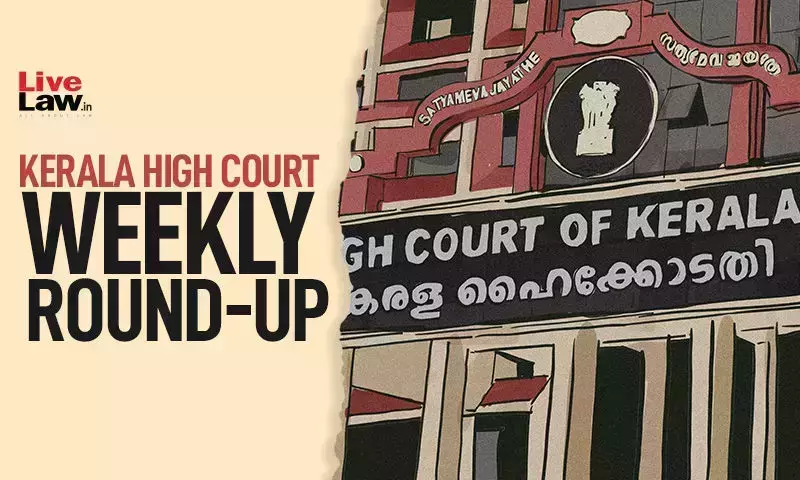Kerala High Court Weekly Round-Up: October 16 - October 22, 2023
Tellmy Jolly
22 Oct 2023 6:00 PM IST

Next Story
22 Oct 2023 6:00 PM IST
Nominal Index [Citations: 2023 LiveLaw (Ker) 567-588]Sasikumar V Ushadevi 2023 LiveLaw (Ker) 567Sanath Roy v State of Kerala 2023 LiveLaw (Ker) 568Narayanan v State of Kerala 2023 LiveLaw (Ker) 569Sathar K.A. v. The Revenue Divisional Officer (RDO) & Ors. Citation: 2023 LiveLaw (Ker) 570Niyas v. State of Kerala 2023 LiveLaw (Ker) 571AT v Union of India 2023 LiveLaw (Ker) 573PKV v AKA...
